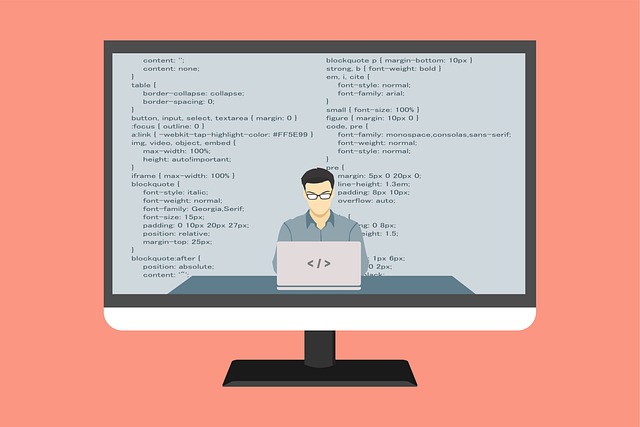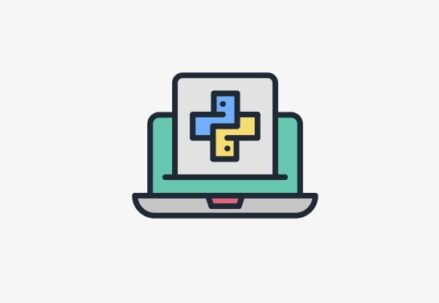Admired worldwide for its malleability, Python has emerged as the top selection among startups. This dynamic and general-purpose language is employed extensively across numerous disciplines – web development, machine learning, data science, automation to name a few. For those with enterprise inclinations pondering how to craft a startup utilizing Python; grasping the profound influence Python may exert on this venture becomes indispensable.
Python has earned its spot at the core of myriad startups owing to an uncomplicated syntax coupled with rapid prototyping abilities. A recurring question that surfaces is ‘is there a need for legal counsel when setting up a business?’. The response invariably hinges on multiple aspects like business type but it’s important to note that forming the technological base primarily using Python doesn’t necessitate any legal proficiency. With access to an array of sophisticated frameworks, libraries and modules furnished by Python, startups can promptly convert their commercial concepts into tangible outcomes thereby providing them with a tactical edge in today’s briskly evolving competitive market landscape.
Choosing the Right Python Framework for Your Startup
Embarking on the journey of a Python startup, one is confronted with an array of crucial considerations. Foremost among these is the pivotal task of choosing your most compatible Python framework that aligns seamlessly with your business requirements. This decisive step casts a substantial influence over the course charted by your Python startup, touching upon essentials like scalability, maintainability and ease in feature addition. Thus, it would be wise to solicit expert counsel prior to setting this choice in stone.
At this juncture you might wonder “do i need a lawyer to start a business?” While it’s not mandatory per se, seeking out legal guidance could shed valuable light on intellectual property rights and other legal nuances tied to software development.
Launching a Python startup – enveloping both technical and potential legal aspects – necessitates taking note of distinct project attributes before locking down this important decision. Your choice hinges on what your startup demands; factors such as desired speed performance, project intricacy, security requisites and accessible resources come into play here. Be it heavyweight frameworks like Django brimming with built-in functionalities or lightweight counterparts like Flask providing flexibility at the helm – make sure their features resonate perfectly with what your venture requires. Adhering to this yardstick can help pave a sturdy groundwork for flourishing Python startups.
Setting Up Your Python Development Environment

As you commence the task of establishing your Python development milieu, it is essential to penetrate the veil of its structure and prerequisites. The initial phase demands that you install Python on your system. However, this process might exhibit variations based on the operating system in use. Nevertheless, one can safely assert that most contemporary operating systems are endowed with pre-installed Python.
The queries such as “do I require a barrister to initiate a business?” or “is a developer necessary for running a startup?” echo similar connotations and their responses depend largely on personal perspectives. But within the confines of Python’s universe, an explicit comprehension of the language coupled with subsequent installation of an apt Integrated Development Environment (IDE) would be adequate.
Choices abound from Pycharm, Atom to Eclipse among others; each presenting a plethora of features catering to developers armed with diverse predilections and necessities. A deep-seated understanding of your project’s specifics will steer you towards choosing an IDE best suited for meeting your startup development needs.
- First, you need to ensure Python is installed on your system. This can be done by checking the version of Python in your command prompt or terminal. If it’s not already installed, you will have to download and install it from the official Python website.
- Next step involves choosing an Integrated Development Environment (IDE) that best fits your project requirements. Here are a few popular options:
- PyCharm: A highly customizable environment that includes features such as code completion, error highlighting, and automatic refactoring.
- Atom: An open-source text editor developed by GitHub which supports multiple plugins for enhanced functionality.
- Eclipse: Known for its robustness and wide array of features including syntax highlighting, auto-completion and powerful debugging tools.
- Once you’ve chosen an IDE, you’ll need to configure it according to your preferences. For instance, if using PyCharm – select the interpreter used for executing Python code within this environment.
- It’s also important to set up a virtual environment for each of your projects. Virtual environments allow developers to work with different versions of libraries without causing conflicts between them.
- Finally, familiarize yourself with basic commands such as running a script or installing new packages through pip- Python’s package manager tool.
In conclusion, setting up a Python development environment requires understanding both the language itself and how different tools can aid in creating efficient workflows. By following these steps carefully and selecting suitable resources based on individual needs – one can establish a productive programming setup conducive towards successful project outcomes.
Designing the Basic Structure of Your Python Startup Project
Envisaging the ideal groundwork for your nascent Python Startup Project is often pertinently swayed by your business disposition. One must ponder, “Is the assistance of a legal professional essential to kickstart my enterprise?” Your trade’s character may plunge you into an intricate web of data confidentiality concerns, intellectual assets claims or prescriptive stipulations that might prompt the need for legal steering in these embryonic stages. Employing Python brings forth its innate ability to simplify and refine these processes with its abundant resources tailored for diverse industry-specific needs.
Furthermore, when contemplating about launching a business underpinned by Python, it becomes immensely crucial to conceive a fortified and adaptable blueprint from inception itself. The adaptability of Python coupled with its vast repertoire of frameworks endows it with the capability to satiate an array of entrepreneurial requirements. A robust infrastructure ensures that your project remains resilient against potential expansion in functionalities down the line while maintaining peak performance levels and steadfastness. This initial phase serves as a sturdy cornerstone for your venture, paving way for seamless operations and fostering enhanced growth prospects.
Building the Core Functionalities with Python
As an individual embarks on the journey of startup evolution, innumerable labyrinthine queries may bubble up. Queries such as, “Can a mastery of Python sharpen the proficiency of a legal practitioner?” or ponderings like “Is it necessary to engage legal counsel when birthing a business?”. Surely, gaining prowess in Python can bolster effectiveness and output not solely for software wizards but equally for experts in diverse arenas including law. With its wide-ranging adaptability and potent capabilities, Python’s usage in mechanizing repetitive chores or assembling coherent data analytics notably simplifies daily undertakings.
Python is universally acclaimed for its straightforwardness and legibility which frequently culminate into expedited development cycles and minimized expenditure. Startups find themselves standing at crossroads where resource maximization holds paramount significance; here is where they can harness the mightiness of Python to develop key features briskly. The language proves particularly adept at formulating algorithms, processing data heaps, and establishing scalable back-end architectures. Whether an aspiring tycoon needs to secure legal aid while launching their enterprise could fluctuate based on locale specifics or intricacies embedded within the business framework. However what stays unaltered is how handy Python remains across various facets of startup growth trajectory.
Implementing Data Management Solutions with Python
Start-ups, irrespective of their operational nature, are inextricably tethered to the absolute necessity of data management solutions. They act as a bedrock for any fledgling company’s decision-making processes that revolve around data. Python then strides into this scenario with its rich tapestry of libraries and framework, emerging as the perfect implementer of such critical solutions at a start-up level.
Python brings along an armada of libraries capable of tackling diverse data management chores. From pandas – the sturdy workhorse for manipulating data, to SQLAlchemy that offers comprehensive relational database operations – Python’s ecosystem is fairly bursting with potentiality to simplify managing, analyzing and storing data. However, this abundance doesn’t eclipse the significance of legal counsel when it comes to business initiation. A curious mind might prudently inquire ‘do I require a lawyer before embarking on my start-up journey?’ The resolution lies entangled within an intricate meshwork of legality encompassing topics like business law, intellectual property rights and indeed – data management. Engaging a legal savant during these formative stages will ensure your nascent enterprise stays aligned with regulations while optimally harnessing Python’s prowess for effective data management.
Utilizing Python Libraries for Enhanced Features
The bedazzling array of libraries available within Python’s mighty arsenal is a key feature that often seduces startups, particularly those with an intense desire to swiftly and effectively concoct advanced features. Libraries such as NumPy and SciPy are like precious gems in the rough for these tech-savvy start-ups, especially when they’re grappling with gargantuan data sets and complex computations. These libraries possess the uncanny ability to streamline intricate mathematical operations, high-level commands, and classes designed solely for showcasing data. Armed with these potent tools, startups can dissect big data accurately, identify emerging trends and make decisions driven by reliable data.
Moreover, other Python librairies exist; TensorFlow, Keras or Scikit-Learn all have this unique characteristic: they demystify machine learning processes making them highly accessible to startups. Yet Python doesn’t limit itself to the realm of data science exclusively – it has its tentacles spread across various domains including web development too! Flask & Django are two notable examples of Python libraries that provide sturdy support for crafting dynamic websites which adds another feather in their cap.
However amid all technical chatter related to setting up your own startup empire one question might nag you persistently – “Do I require legal assistance while launching my business?” Straying into territories beyond pure technical discourse may seem daunting but acknowledging the importance of legal consultation is paramount. It offers priceless insights regarding business setup procedures contracts intellectual property rights etc., serving as crucial pillars supporting the life cycle of any startup venture.
FAQ
A chameleon-like programming language, Python adapts itself effectively in startup scenarios. Its readability, efficiency and the wide spectrum of library support it provides makes it an asset for startups to build robust and scalable applications with less coding.
The selection process involves analyzing the characteristics and needs of your project. Factors like scalability, task complexity, library support, community backing along with understanding the learning curve associated with each framework play significant roles.
Installation of Python followed by an integrated development environment (IDE) such as PyCharm or Eclipse or Jupyter forms the foundation. Also recommended is a version control system like Git which aids in tracking alterations within your project.
A typical blueprint includes diverse folders and files containing source code, unit tests documentation and data files. Depending on factors like project intricacy and team preferences this arrangement might see some variations.
Scripts written in python performing tasks ranging from processing data to mathematical calculations to network-related operations form the backbone here . Thanks to its comprehensive library support , implementation becomes easier .
Libraries such as Pandas , NumPy , SQLAlchemy make python highly effective when it comes down to efficient manipulation , cleaning and visualising data thus making it an optimal choice for applications which are more data-driven .
Collections of modules aka libraries provide pre-scripted codes simplifying common tasks . These ready-to-use functions save time spent on developing these features thereby ensuring efficient execution . For instance , for data visualisation tasks Matplotlib and Seabourn are used while machine learning tasks require libraries such as TensorFlow and PyTorch .
Django is a common sight when it comes to web development, Pandas is the go-to choice for data analysis. As far as machine learning goes, TensorFlow has been a preferred pick. And PyQt finds its use in desktop applications. The selection of these libraries largely depends on the startup’s requirements.



